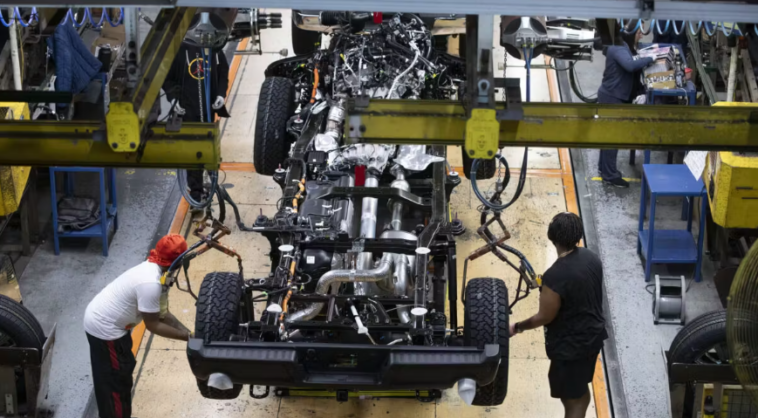President Donald Trump has delivered a major win for American automakers, securing a new tariff relief plan designed to reward U.S.-based manufacturing while encouraging the return of offshored supply chains.
Facing pressure from within the industry over the economic strain of a 25% tariff on imported vehicles and auto parts, Trump’s administration has finalized a deal that grants targeted relief to manufacturers with a strong domestic footprint.
Under the new order, U.S.-based automakers will receive credits—up to 15% of the value of vehicles assembled in America—which can be applied to offset the cost of imported components. This effectively eases the tariff burden on companies that invest in domestic production while keeping the pressure on foreign producers.
In addition, vehicles and parts currently covered under the 25% Section 232 auto tariffs will be exempt from overlapping duties previously applied to Canadian, Mexican, and other foreign imports. This prevents the compounding of tariffs and removes unnecessary cost layers from the supply chain for companies operating in the U.S.
Commerce Secretary Howard Lutnick explained that the goal of the deal is to accelerate the reshoring of supply chains back to American soil. “This agreement is a clear victory for President Trump’s trade policy. It rewards American workers and encourages manufacturers to bring production home,” he said. Lutnick emphasized that companies demonstrating a real commitment to expanding U.S.-based manufacturing would benefit most under the new structure.
Industry response has been overwhelmingly positive. Leaders from major automakers praised the president’s direct and results-driven approach to leveling the global playing field. Executives applauded the administration for crafting a deal that supports domestic jobs while giving companies the breathing room needed to shift production back to the United States.
The announcement comes just ahead of President Trump’s scheduled visit to Michigan—home to a critical share of America’s auto industry. The move is expected to resonate with both workers and manufacturers in the Rust Belt, reinforcing Trump’s reputation as a president who stands up for American industry.
With this latest action, Trump continues to deliver on his America First economic agenda—protecting U.S. workers, pressuring foreign competitors, and reviving key industries that had long been neglected under past administrations.

